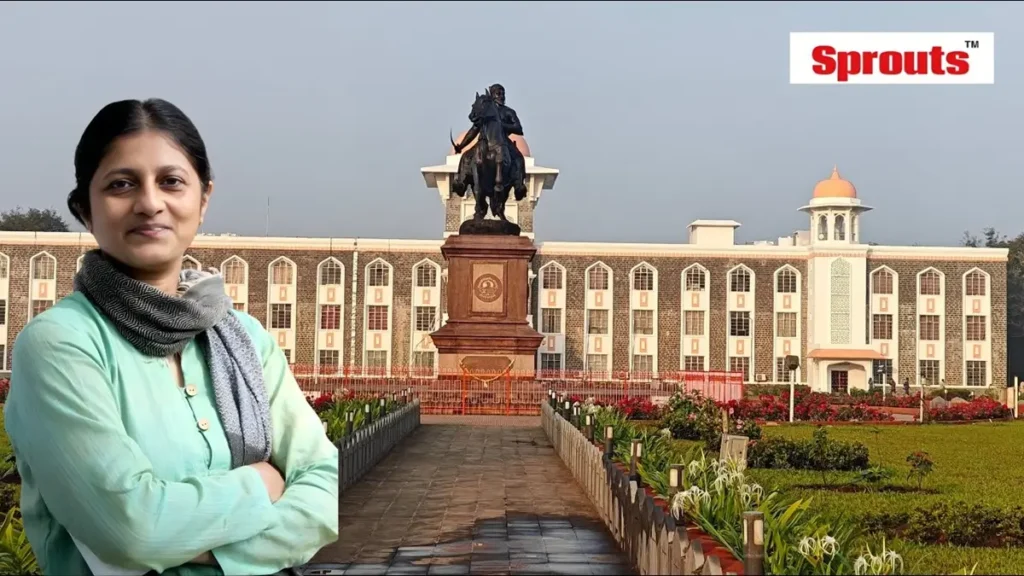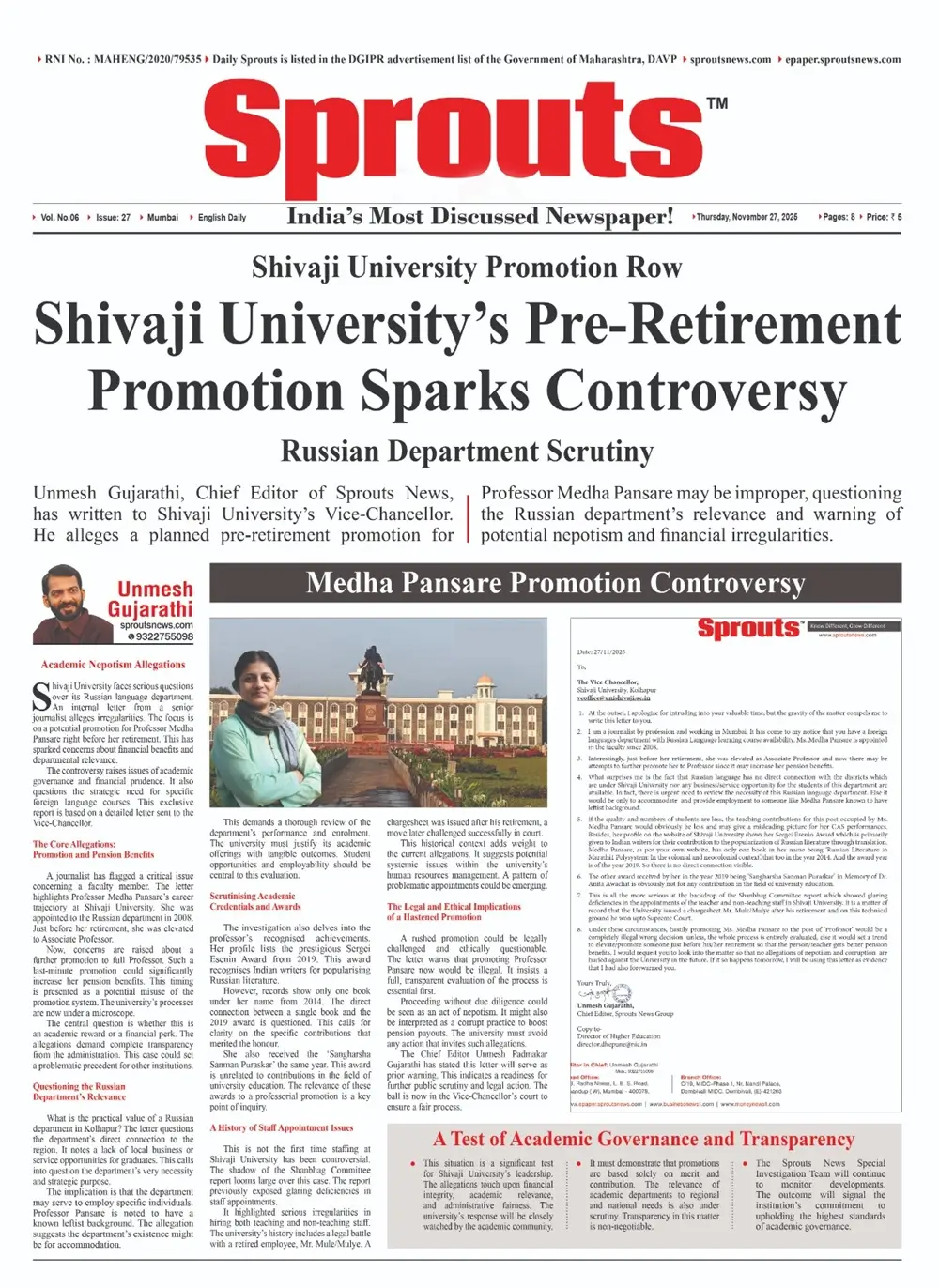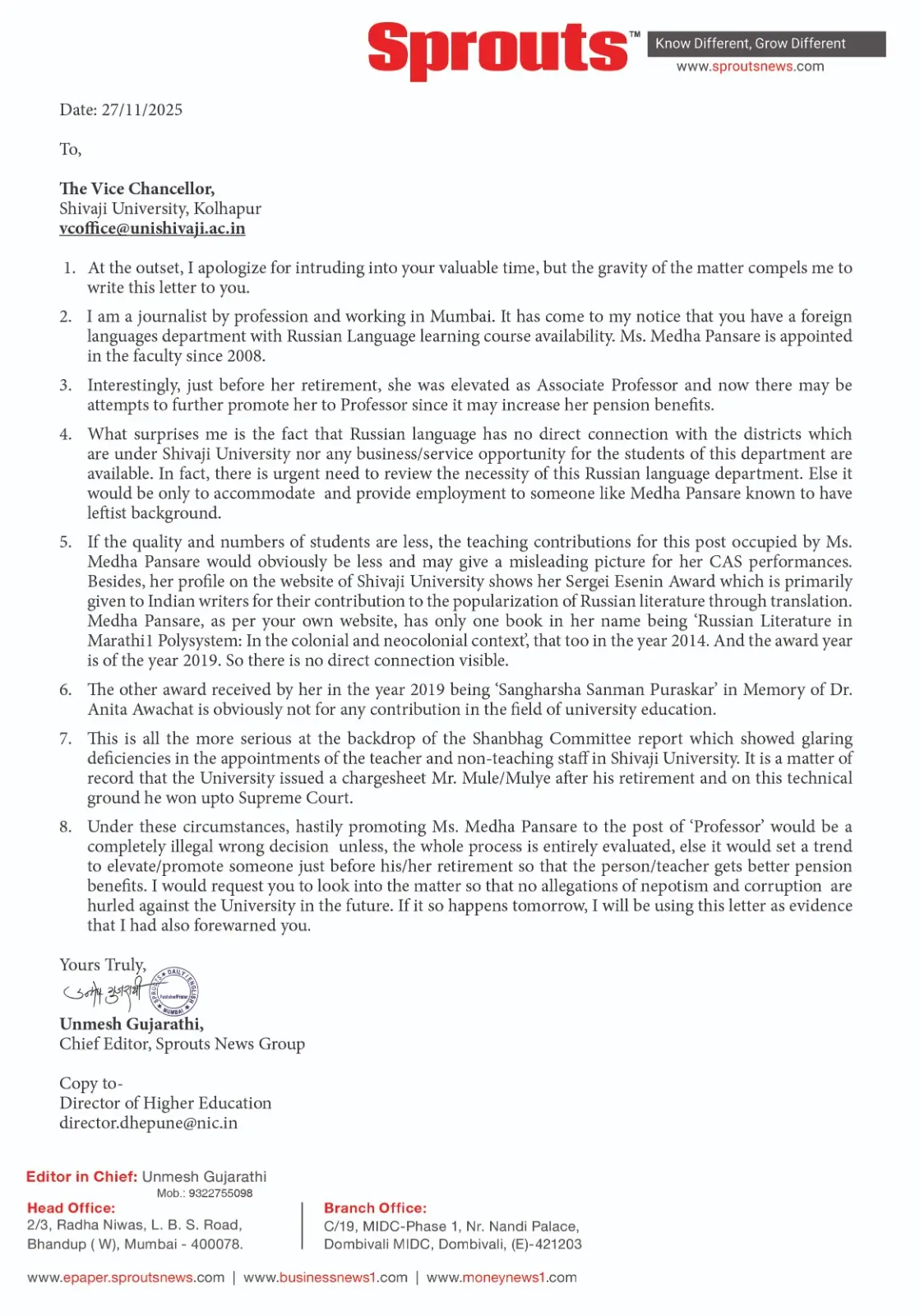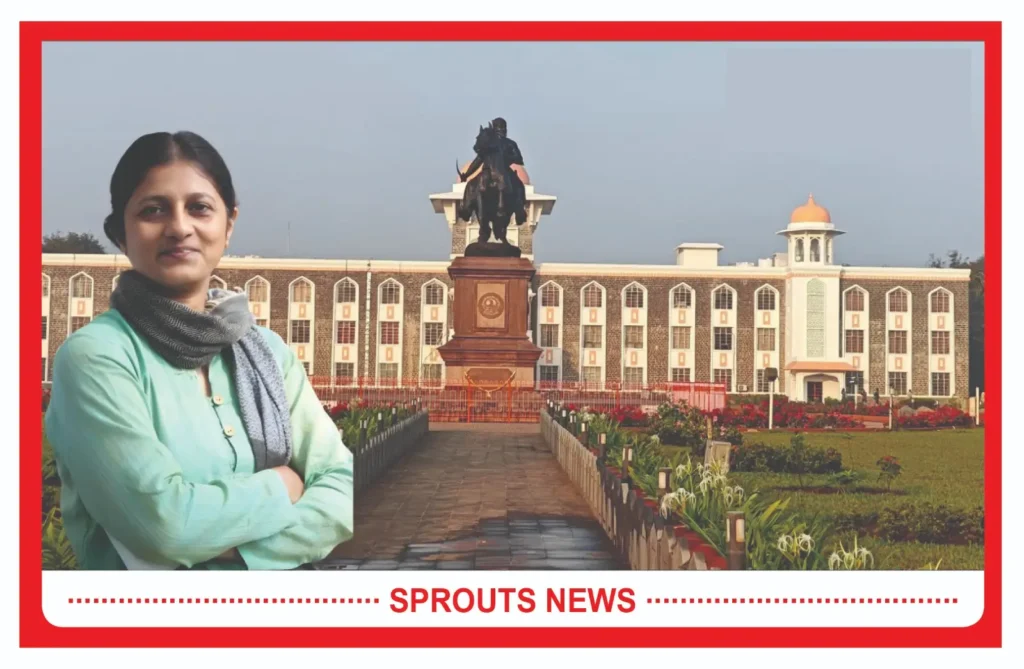Exclusive: Shivaji University’s Russian Department and Alleged Pre-Retirement Promotion Under Scrutiny
Shivaji University is facing serious allegations after a senior journalist flagged potential irregularities involving a pre-retirement promotion in the Russian Department. The controversy centres on Professor Medha Pansare, who was appointed in 2008 and promoted to Associate Professor shortly before retirement. A further elevation to full Professor could significantly enhance her pension benefits, raising concerns about financial misuse and weak academic governance. This exclusive report highlights the need for transparency and institutional accountability.
- Exclusive: Shivaji University’s Russian Department and Alleged Pre-Retirement Promotion Under Scrutiny
- The Core Allegations: Promotion and Pension Benefits
- Questioning the Russian Department’s Relevance
- Scrutinizing Academic Credentials and Awards
- A History of Staff Appointment Issues
- The Legal and Ethical Implications of a Hastened Promotion
- A Test of Academic Governance and Transparency
The controversy raises issues of academic governance and financial prudence. It also questions the strategic need for specific foreign language courses. This exclusive report is based on a detailed letter sent to the Vice-Chancellor.
Click Here To Download the News Attachment
The Core Allegations: Promotion and Pension Benefits
A journalist has flagged a critical issue concerning a faculty member. The letter highlights Professor Medha Pansare’s career trajectory at Shivaji University. She was appointed to the Russian department in 2008. Just before her retirement, she was elevated to Associate Professor.
Now, concerns are raised about a further promotion to full Professor. Such a last-minute promotion could significantly increase her pension benefits. This timing is presented as a potential misuse of the promotion system. The university’s processes are now under a microscope.
The central question is whether this is an academic reward or a financial perk. The allegations demand complete transparency from the administration. This case could set a problematic precedent for other institutions.
Questioning the Russian Department’s Relevance
What is the practical value of a Russian department in Kolhapur? The letter questions the department’s direct connection to the region. It notes a lack of local business or service opportunities for graduates. This calls into question the department’s very necessity and strategic purpose.
The implication is that the department may serve to employ specific individuals. Professor Pansare is noted to have a known leftist background. The allegation suggests the department’s existence might be for accommodation.
This demands a thorough review of the department’s performance and enrolment. The university must justify its academic offerings with tangible outcomes. Student opportunities and employability should be central to this evaluation.
Also Read: Gauri Palve Death Case: Family Alleges Murder, Not Suicide.
Scrutinizing Academic Credentials and Awards
The investigation also delves into the professor’s recognised achievements. Her profile lists the prestigious Sergei Esenin Award from 2019. This award recognises Indian writers for popularising Russian literature.
However, records show only one book under her name from 2014. The direct connection between a single book and the 2019 award is questioned. This calls for clarity on the specific contributions that merited the honour.
She also received the ‘Sangharsha Sanman Puraskar’ the same year. This award is unrelated to contributions in the field of university education. The relevance of these awards to a professorial promotion is a key point of inquiry.
A History of Staff Appointment Issues
This is not the first time staffing at Shivaji University has been controversial. The shadow of the Shanbhag Committee report looms large over this case. The report previously exposed glaring deficiencies in staff appointments.
It highlighted serious irregularities in hiring both teaching and non-teaching staff. The university’s history includes a legal battle with a retired employee, Mr. Mule/Mulye. A chargesheet was issued after his retirement, a move later challenged successfully in court.
This historical context adds weight to the current allegations. It suggests potential systemic issues within the university’s human resources management. A pattern of problematic appointments could be emerging.
The Legal and Ethical Implications of a Hastened Promotion
A rushed promotion could be legally challenged and ethically questionable. The letter warns that promoting Professor Pansare now would be illegal. It insists a full, transparent evaluation of the process is essential first.
Proceeding without due diligence could be seen as an act of nepotism. It might also be interpreted as a corrupt practice to boost pension payouts. The university must avoid any action that invites such allegations.
The Chief Editor Unmesh Padmakar Gujarathi has stated this letter will serve as prior warning. This indicates a readiness for further public scrutiny and legal action. The ball is now in the Vice-Chancellor’s court to ensure a fair process.
A Test of Academic Governance and Transparency
This situation is a significant test for Shivaji University’s leadership. The allegations touch upon financial integrity, academic relevance, and administrative fairness. The university’s response will be closely watched by the academic community.
It must demonstrate that promotions are based solely on merit and contribution. The relevance of academic departments to regional and national needs is also under scrutiny. Transparency in this matter is non-negotiable.
The Sprouts News Special Investigation Team will continue to monitor developments. The outcome will signal the institution’s commitment to upholding the highest standards of academic governance.




















